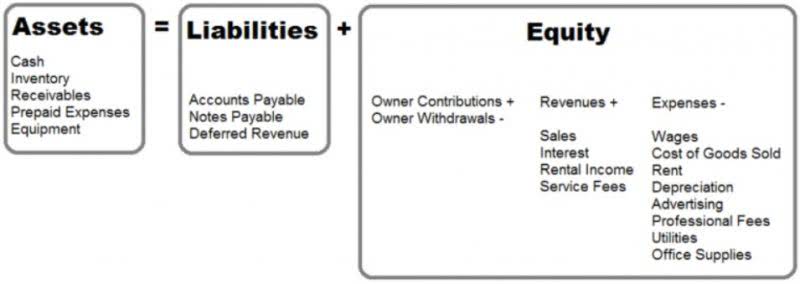This is because the Oregon state standard deduction is going to make the taxable income $0 or less, therefore, there is no need for the taxpayer to file a tax return. The state of Oregon has a progressive tax system which is reflected on the tax brackets for the upcoming tax season. Whether you’re a full-year resident or a partial-year resident that requires to file an Oregon state income tax return, the tax brackets are needed to calculate the tax liability. Oregon levies a progressive state income tax system with one of the highest top rates in the U.S., at 9.90%. Residents of the greater Portland metro area also have to pay local income tax. However, the Beaver State also has no sales taxes and below-average property taxes.
Are other forms of retirement income taxable in Oregon?
A capital gain is a capital asset’s increase in Car Dealership Accounting value from the value at which it was purchased. Capital assets include stocks, real estate, crypto, and private businesses – in short, any significant property that could gain or lose value over time. That being said, there are a number of other retirement tax policies in Oregon that will benefit many retirees.

Oregon Income Tax Calculator
- The Tax tables below include the tax rates, thresholds and allowances included in the Oregon Tax Calculator 2023.
- For retirees living on a fixed budget, this can add up to hundreds of dollars of savings every year as compared to other states.
- By monitoring your post-tax deductions, you can ensure that you’re making the most of your paycheck and maximizing your financial well-being.
- The 2019 tax rates and thresholds for both the Oregon State Tax Tables and Federal Tax Tables are comprehensively integrated into the Oregon Tax Calculator for 2019.
- Read more here and check out our Guided Planner tool, where we’ll point you toward the strategies that might apply to you.
- Per IRS/State regulation – not eFile.com – an Oregon state tax return can only be e-Filed together with an IRS tax return.
For retirees living on a fixed budget, this can add up to hundreds of dollars of savings every year as compared to other states. The state of Oregon does have an estate tax that ranges from 10% to 16% depending on the size of the estate. Sales Tax – Oregon is one of only four (4) states in the union with no sales tax, yay! In addition to the Corporate payroll Tax and Excise Tax, the State of Oregon also has a Gross Margins Tax referred to as the Corporate Activity Tax (similar to Ohio’s CAT Tax). The CAT Tax is assessed as $250 per entity, plus 0.57% of Gross Receipts over $1 Million.
Oregon: Federal FICA Rates in 2020
Per IRS/State regulation – not eFile.com – an Oregon state tax return can only be e-Filed together with an IRS tax return. Instruction how to only prepare an Oregon state return on eFile.com and then download, print sign and mail it in. The standard deduction for a Head of Household Filer in Oregon for 2021 is $ 2,420.00.
Oregon state income tax rates and calculator

To address the racial inequities in our tax system, oregon state income tax rate it helps to have better information. Understanding the extent to which the tax system, and particular tax provisions, impact racial disparities can help us find ways to reduce those disparities. Here you can find how your Oregon based income is taxed at different rates within the given tax brackets. When you prepare your return on eFile.com this is all calculated for you based on your income. Keep in mind that this estimator assumes all income is from wages, assumes the standard deduction, and does not account for tax credits.
- Here you can find how your Oregon based income is taxed at different rates within the given tax brackets.
- The 2020 tax rates and thresholds for both the Oregon State Tax Tables and Federal Tax Tables are comprehensively integrated into the Oregon Tax Calculator for 2020.
- As of this writing, state economists expect a record-shattering $3.9 billion “kicker” rebate.
- Taxable property includes real property, mobile homes, and some tangible personal property used by business.
- The federal standard deduction for a Head of Household Filer in 2022 is $ 19,400.00.
